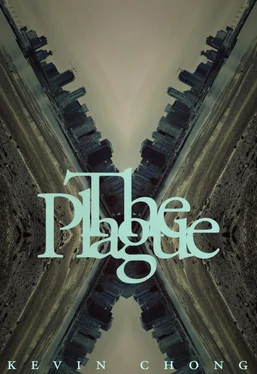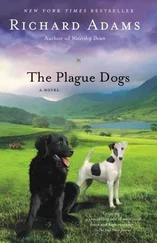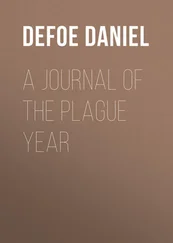The remarks came from within the mayor’s cherry-panelled office on the third floor of City Hall. The video had an impromptu air. The mayor sat behind his desk, which was cluttered with stamps, files, and souvenir flags. One of the venetian blinds behind him was unevenly half-lowered. Parsons wore a white dress shirt with a creamy blue tie, slightly loosened. His jacket was slung around the back of his chair. His eyes looked puffy, as though he had been crying, but he was otherwise well-composed, and before he launched into his speech, he flashed his white teeth at someone off camera. The mayor read from his text, his eyes bobbing up regularly from the page as though he was a swimmer doing the breaststroke.
“First off, I want to thank the people of our city for their time,” he began after the land acknowledgment. “As always, it’s my privilege to serve you, even under these extraordinary circumstances. Yesterday’s incident was troubling for all of us who take pride in our city’s friendliness, its inclusiveness, its safety. Last night, after watching images from Robson Street and speaking to the chief of police, I could not sleep. I got out of bed and put together some thoughts. Please forgive me if my language is not as polished as I would like.
“It would be foolish not to address the anxiety that served as the subtext for yesterday’s violence and property damage. We are undergoing an immensely stressful time. Many Vancouverites are worried about death and illness. Others have found their livelihoods and routines affected by this illness. Many businesses have shut down or have reduced hours. To all of you affected, I want to say that we have not stopped working to find solutions since this health crisis first came to notice.
“We are committed to putting to justice the most grievous offenders from last night,” he continued after sipping water from a plastic bottle. “The incidents yesterday struck many Vancouverites as a gesture of hopelessness. People who see no future see no reason not to break a window and steal a pair of sneakers. Our hearts are broken like yours. After the last riot, there was a great up-swell in civic pride as people helped repair broken windows. Kind messages were scrawled on the plywood boards that covered up broken shopfront exteriors. The messages all boiled down to this: ‘Not all Vancouverites are vandals—not all of us are rioters.’”
He took another sip of water and a deep breath. “I am going to suggest the opposite: we are all complicit in the tensions and inequities exposed, not created, by the outbreak. We see the illness as an exceptional situation. In reality, it was our founding condition. As many people know, our city takes its name from an English officer of the Royal Navy. When he entered what’s now known as the Strait of Juan de Fuca in the early 1890s, he’d already been at sea for a year and had visited Australia, Hawaii, and South Africa on his quest to claim land on behalf of the British Empire. When he came to our region, though, Captain George Vancouver did not see wealth and abundance but devastation. He found abandoned villages and beaches lined with decaying bodies. He saw canoes placed in the trees, which upon closer inspection, held skeletons inside them.
“Amid this devastation, Captain Vancouver was greeted by only a few Indigenous people, many of whom bore terrible scars and were blind. Vancouver saw evidence that there had been a far greater population here in the past—village sites and clearings that would have contained thousands of inhabitants. Some historians now estimate that there were a hundred thousand original inhabitants in this unceded land we now call home. The Coast Salish people of this region were seafaring peoples whose canoes covered the water. Imagine great numbers of them against the first white settlers. History would surely be different.
“What caused such devastation? Smallpox, brought first to the other end of the continent by English soldiers during the American War of Independence. The disease had already struck the area in 1782 when David Thompson visited. He was asked then by Indigenous people whether smallpox was a weapon of the white man brought to destroy them.
“Now, conspiracy theorists have suggested that this epidemic is a foreign plot to destabilize our economy and real-estate market. You don’t need to wear a tinfoil hat to see how disease disproportionately affects our most marginalized people, the poorest, the least privileged.
“I came to office promising change while at the same time appealing to a broad electorate. People were disheartened by the Annex project and the previous mayor’s tone-deaf self-congratulations over reduced drug fatalities. And yet there has been little appetite to follow through on the consequences of such uneasiness. I do not take your vote as a blank cheque to enact unpopular policies, but leadership requires tough choices. It requires acting out of principle and not in the service of a focus group.”
The remainder of the mayor’s speech outlined a more severe version of his anti-poverty and environmental policies. City land earmarked for mixed use would be designated only for social housing. Anti-gentrification zones would be created. In the last weeks of his election campaign, the mayor had stepped back from his market-hostile ideas. Now he behaved as though the disease was his own chance to smash a window.
Siddhu watched the speech from a pub, his laptop opened in front of him. He wasn’t sure how a story about it would work on Horne-Bough’s website. His riot article was received indifferently by his boss, who did not even bother to offer it first to his subscribers. “I’m glad you’re here to round out our coverage,” he said. “No one can call us mere gossip-mongers.”
Siddhu had finished half his article when he was called in by Horne-Bough. His young employer was dressed in a cream hoodie that made his soft skin look like bleached paper. “We got the story we’ve been hunting down—and, before you ask, it wasn’t cheap,” he said. “The lawyers have looked at it. Now we need an extra set of eyes on this to make sure we haven’t split any infinitives.”
According to this report, released only to subscribers, a twenty-eight-year-old woman claiming to be Parsons’ biological daughter (her existence had been concealed from Parsons by her birth mother, who died when she was a child) described having sexual contact with the mayor earlier that year. The story would be shared with non-subscribers an hour later.
“Guess who we want to contact the mayor for comment?” Horne-Bough said with a smile. He handed him his flip phone. It was already ringing.
This section of the story takes place over a long, cold winter. Lifelong Vancouverites tolerated snow once a year as long as the rains flushed it away by nightfall. This year, the first of several snowfalls came over three days in late November, the flakes thick like candlewax, and stuck to the ground. In the evenings that followed it turned to ice in sub-zero temperatures before being recoated in snow. As usual, cars fishtailed on the road. Reactions to the weather were even more drastic than usual. Sidewalks went unshovelled. Road salt became scarce. People no longer took pleasure in venting about the city’s inadequate road-clearing strategies. Some welcomed the snow as another excuse to remain housebound. They saw the cold as a disease killer and only wished it was colder. Others took it in stride as yet another burden to carry.
The death toll rose sharply as Vancouverites neared the end of the first month of quarantine. There were fifteen and then twenty-five recorded deaths in the first two weeks of the quarantine. By its fifth week, as we entered the first week of December, there were a hundred and twelve deaths. None of these figures were available at the time to the general public, as officials obfuscated and hedged. But we became aware of the steep rise in fatalities by the numbers of friends of friends, then friends, who began to display symptoms. We noticed the silence of acquaintances who were otherwise vocal on social media. New faces ran our scant groceries through the register.
Читать дальше












